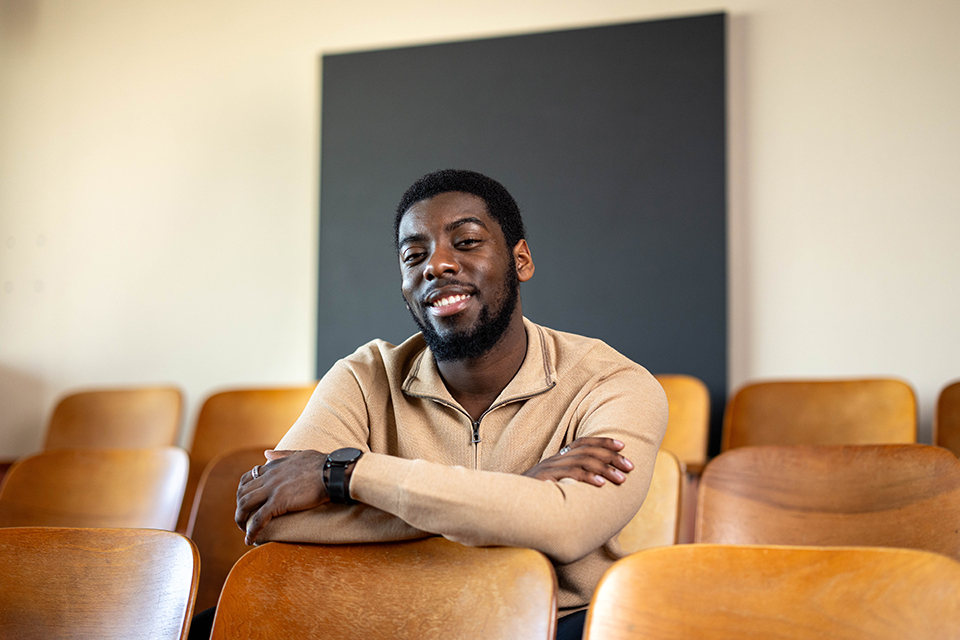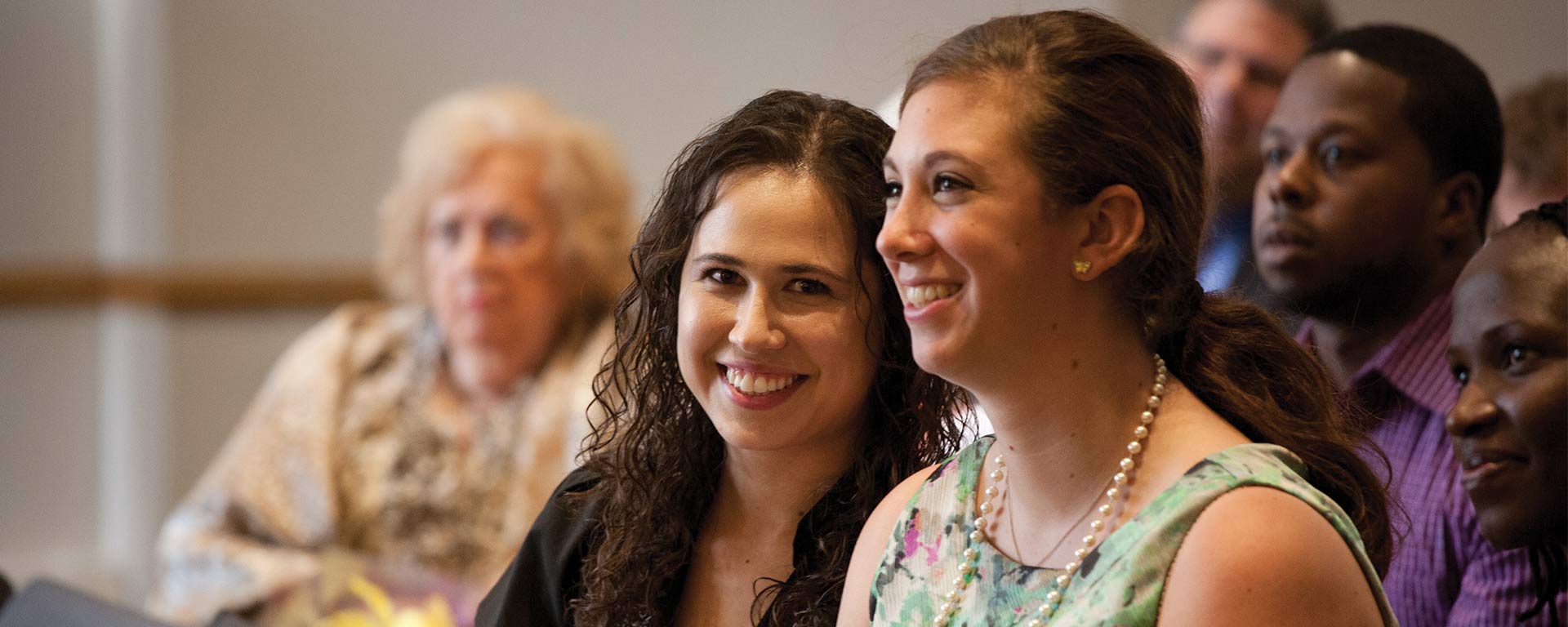Bachelor of Arts in Education Studies
Education studies at Brandeis is an interdisciplinary program through which you’ll study the social and historical contexts of education policy, human learning and development, and the role of schooling in society. As an education studies major, you will engage in pivotal issues in the field, from classroom methodology to opportunity and achievement gaps in equity and achievement.
The interdisciplinary curriculum is structured to give you the flexibility to tailor your education to your interests.
A major or minor in education studies will lay a strong foundation for a career in educational research and policy, school psychology, higher education, informal education, and even museum education—not to mention graduate studies in the field.
If a stimulating career in the classroom is what you’re after, check out our teacher education program.
Note: Education studies majors and minors starting in fall 2025 must complete an applied learning requirement.
Why Brandeis?
Brandeis’ Education Program is rich in resources dedicated to strengthening teaching and learning. We offer several concentrations, so that whether your goal is making smart policy, acquiring best practices for the classroom, or becoming a teacher leader, you’ll benefit from a multidimensional approach to education. Our program also embraces the liberal arts perspective, encouraging you to think critically and creatively.
Academics and Research
Expand All
As an education studies major or minor, you will engage in academic discussion and hands-on research on the role of schools in our society. In addition to two core courses, you will choose elective courses, which are organized into four clusters:
-
education, equity, and social change
-
teaching and learning inside and outside of schools
-
human creativity and development
-
Jewish formal and informal education
This makes you the pilot of your learning and gives you the flexibility to pursue other disciplines, such as American history, psychology, and Jewish studies.
Please note: Education majors and minors starting in fall 2025 must complete an applied learning requirement.
If you’re passionate about a certain topic in education, you may consider writing a thesis. While challenging, it’s a great way to develop expertise in a particular area, as well as to learn how to analyze existing research in the field and how to conduct empirical research.
Education studies majors and minors often choose to do an internship in the field — such as studying education policymaking in Washington, D.C., or in other countries during a semester abroad.
Please note: Education majors and minors starting in fall 2025 must complete an applied learning requirement.
Brandeis has a tradition of pairing education studies majors with several nearby elementary, middle, and high schools to assist teachers and support their students’ work. We also encourage students to take on one-on-one tutoring volunteerships with English learners, or work near campus in the early-development Lemberg Center.
Faculty Excellence
Expand All
Our highly productive yet accessible faculty publish and lecture widely and are recognized for their teaching:
- Jasmine Alvarado's work focuses on the intersections between societal inequities, educational policies and the experiences of families in K-8 schools. In relation, Jasmine engages in ethnographic, narrative and participatory-based methods, and draws on understandings from critical race, intersectional feminist and sociolinguistic perspectives. Jasmine's teaching experiences over the past decade include teaching university-level courses, supervising teacher candidates, leading conference workshops for educational leaders, teaching elementary bilingual youth and leading adult language development classes. Her unwavering commitment towards collective learning, organizing and interconnectedness stem from her experiences as a student, teacher, administrator and after-school program director of NYC and Greater Boston Public Schools, and being a member/caretaker of an Ecuadorian family with Quechua roots.
- Leah Gordon's first book, "From Power to Prejudice: The Rise of Racial Individualism in Midcentury America,"received the 2016 Linda Eisenmann Prize from the History of Education Society. She has received awards and fellowships from the Spencer Foundation, the National Academy of Education, the American Council of Learned Societies and Stanford University's Center for Comparative Studies in Race and Ethnicity.
- Ziva R. Hassenfeld's research sits at the intersection of language, literacy and religious education, with a particular focus on how students make meaning of texts and how the power dynamics of the classroom impact that meaning making process. Her first book, “The Second Conversation: Interpretive Authority in the Bible Classroom” (Brandeis University Press), explores how students and teachers negotiate meaning in the study of sacred texts, foregrounding the generative, cultural and theological dimensions of textual interpretation. Across her research, she consistently attends to how students’ linguistic and cultural backgrounds shape their engagement with classical Hebrew, biblical texts, and broader religious discourses.
-
Jonathan Krasner is the author of The Benderly Boys and American Jewish Education (Brandeis University Press, 2011), which won the 2011 National Jewish Book Award in American Jewish Studies. Jonathan Krasner's 2020 book, “Hebrew Infusion: Language and Community at American Jewish Summer Camps” (Rutgers University Press), co-authored with Sarah Bunin Benor and Sharon Avni, was the recipient of the 2020 National Jewish Book Award in Education and Jewish Identity.
- Tanishia Williams specializes in urban politics at the intersection of race, gender and class. She obtained a PhD from the Public and Urban Policy program from the Milano School of International Affairs, Management and Urban Policy at The New School. She currently serves as the Inaugural Education Stratification Postdoctoral Fellow at the Institute on Race, Power and Political Economy. She previously served as a Critical Race Theory Senior Research Fellow with the African American Policy Forum and Center for Intersectionality and Social Policy Studies at Columbia University. Tanishia’s scholarship examines how racism permeates systems through existing legal structures that buttress the subordination of minorities through racialized hierarchies.
Careers and Graduate Study
Expand All
As an education studies major, you will be prepared for graduate work in education, equity, and social change.
Brandeis graduates have become counselors, school psychologists, or educators in specialized arenas, such as schools for the hearing-impaired or Jewish schools. Other alumni have gone on to work in the legal field, for the State Department, and for major publications.
Others have gone on to graduate school to become educators in public, charter, and private schools in urban areas such Boston, New York, Chicago, Miami, and San Diego, as well as in suburban districts such as Westchester, N.Y., and Newton and Framingham, Mass.

